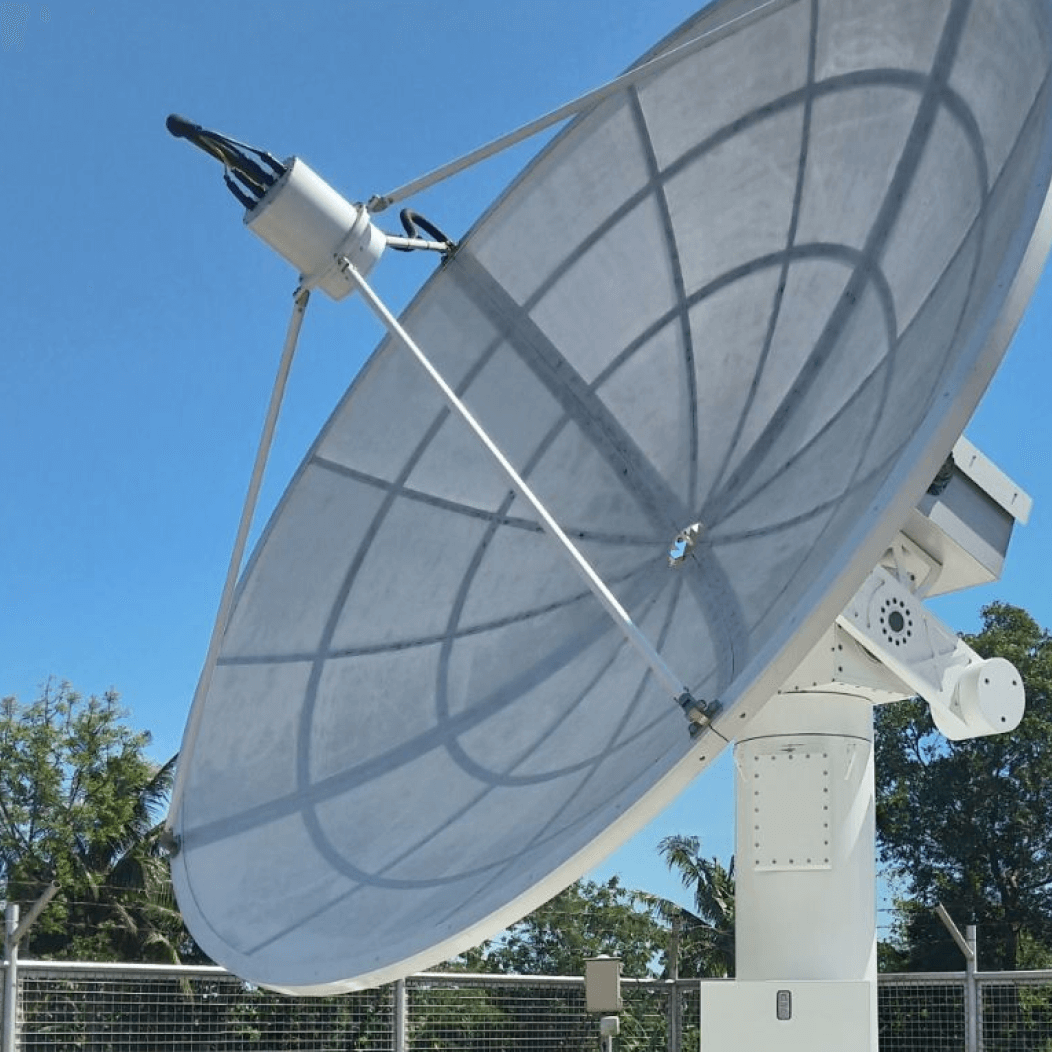
Partnerships
Partnerships with Universities and Research Institutions
Jointly Creating Knowledge and Fostering Future Leaders

Partnerships
Partnerships with Universities and Research Institutions
Jointly Creating Knowledge and Fostering Future Leaders
As the world is faced with compounded crises, partnerships with universities and research institutions are indispensable for addressing challenges facing partner countries and achieving the SDGs because of their extensive and advanced knowledge. JICA promotes partnerships with these institutions through various approaches, including their participation in JICA’s research projects and studies on international cooperation, in technical cooperation projects in developing countries, as well as accepting students from these countries.
JICA Development Studies Program (JICA-DSP)
Sharing Japan’s modernization experiences and lessons learned from its development cooperation
The aim of the JICA Development Studies Program (JICA-DSP) is to allow JICA scholars* who have studied in Japan and returned home to address development issues in their homelands and to play a significant role there as future leaders who can foster a long-lasting bilateral relationship between each country and Japan. As of the end of fiscal 2022, over 2,000 JICA scholars from 106 countries were studying in master’s and doctoral courses at universities in Japan.
The JICA-DSP offers JICA scholars the opportunity to learn about Japan’s modernization and development experiences, which differ from those of Europe and the United States, and its wisdom as a country that has provided cooperation toward the progress of developing countries after World War II. JICA-DSP consists of two kinds of programs: (1) the Common and Local Programs offered by JICA, titled Understanding the Japanese Development Experience and Understanding Japanese Local History and Development; and (2) Development Studies Programs Offered by Various Universities, offered by partner universities. Through these two kinds of programs, JICA scholars learn about Japanese expertise and experience and put them to good use for the development of their countries back home.
In fiscal 2022, proactive efforts resulted in 242 and 504 JICA scholars participating in the Common Programs and Local Programs, respectively.
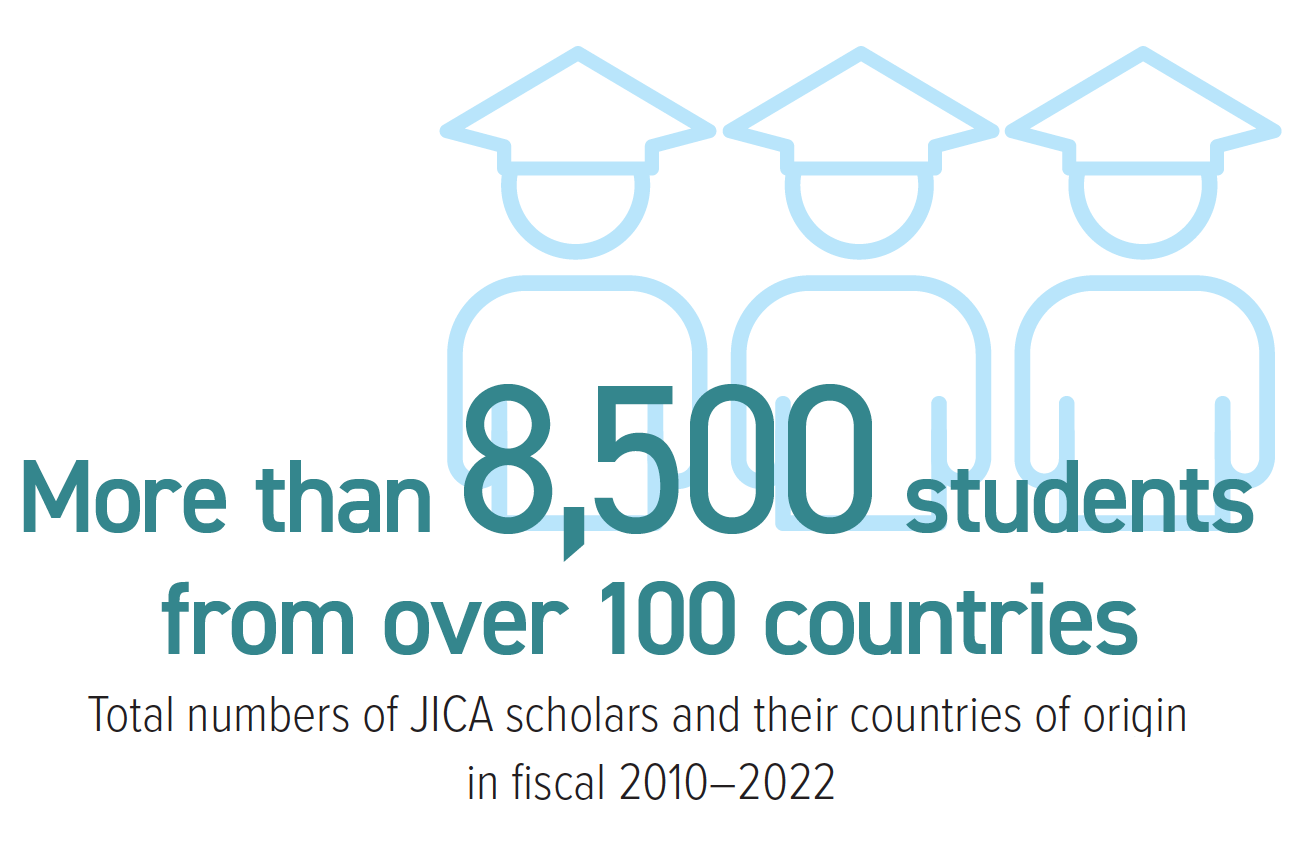
JICA Program for Japanese Studies (JICA Chair)
Expanding JICA-DSP abroad
In order to offer partner countries opportunities to learn about Japan’s modernization and development cooperation experiences, JICA offers the JICA Program for Japanese Studies (JICA Chair). The JICA Chair supports leading universities in these countries to establish courses or programs of Japanese studies that explore such experiences also through delving into the Japanese history and culture that underlie these experiences.
JICA Chair’s activities include: (1) Short Intensive Lectures, which involve, among other things, dispatching lecturers from Japan and offering related video teaching materials; and (2) the JICA Chair of Japanese studies, which also entails conducting joint research activities and providing research and education opportunities in Japan for young researchers. By the end of fiscal 2022, JICA had offered the JICA Chair to 71 countries, up from an accumulated total of 46 by the previous year.
In fiscal 2022, a much larger number of JICA Chair courses were given face-to-face by lecturers sent from Japanese universities and other institutions, facilitating more lively and interactive discussions. Three series of video materials served as a key tool for promoting the JICA Chair in partner countries. These were (1) “Seven Chapters on Japanese Modernization,” which JICA coproduced with the Open University of Japan in fiscal 2019; (2) their sequel “Japanese Modernization Lecture Series (Chapters 8 to 15)”; and (3) a series on Japan’s modernization and development cooperation experiences in line with the JICA Global Agenda—a set of issue-specific cooperation strategies.
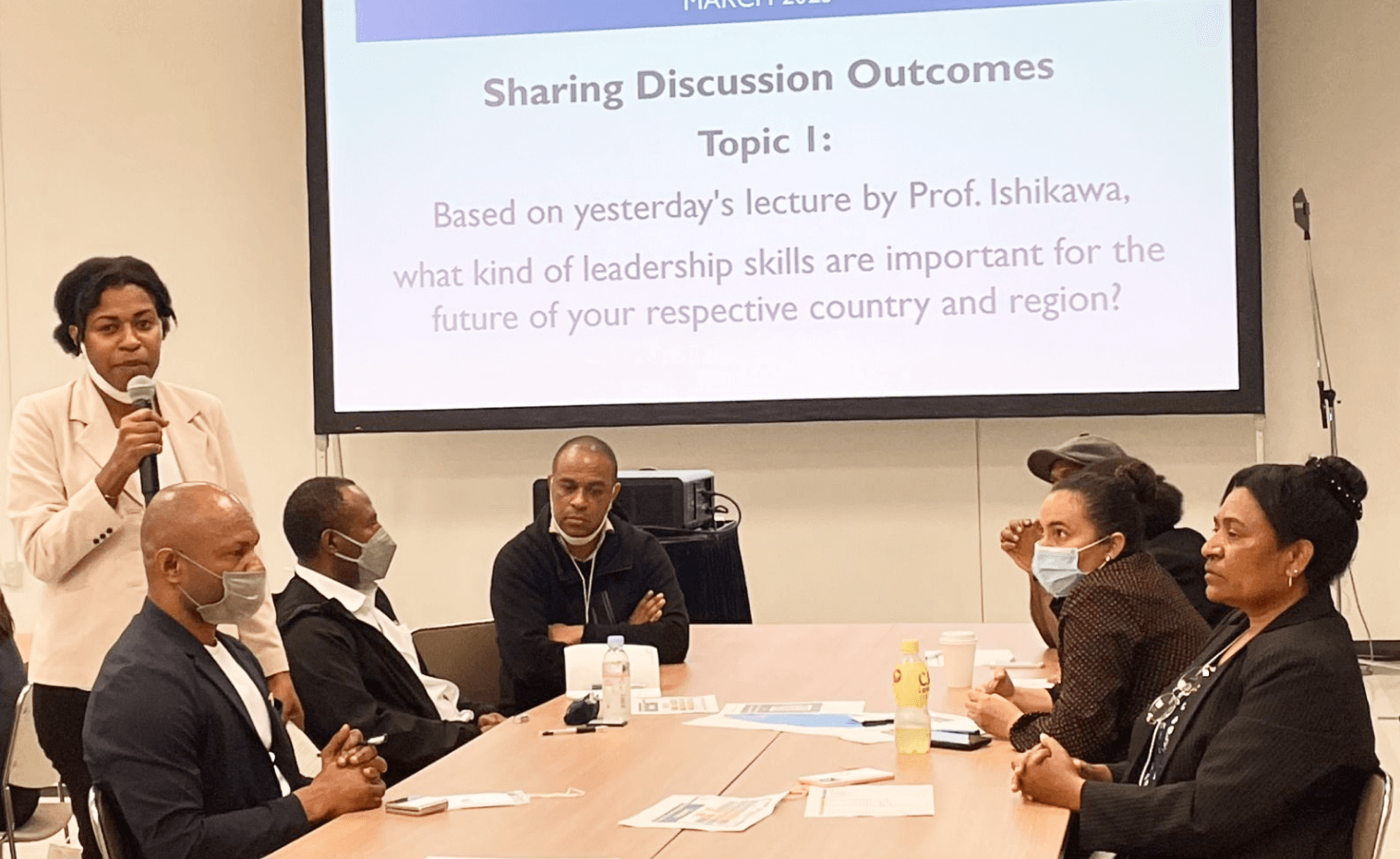
Under JICA-DSP, JICA organizes networking events for two objectives. One is to consider what roles JICA scholars are expected to play in addressing challenges facing their countries. The other is to build cross-cutting networks among JICA scholars and with JICA-related personnel. The wider goal is to strengthen ties with future leaders who can foster a long-lasting bilateral relationship between each country and Japan.
Science and Technology Research Partnership for Sustainable Development (SATREPS)
Drawing on the research capacity of universities and research institutions
SATREPS is an endeavor to draw on the latest science and technology to come up with solutions to increasingly serious global challenges, such as environmental and energy issues, food crises, and epidemic outbreaks. JICA implements SATREPS jointly with the Japan Science and Technology Agency (JST) and the Japan Agency for Medical Research and Development (AMED). SATREPS involves international joint research between universities and research institutions in Japan and those in developing countries. It also involves efforts to utilize these research outcomes for the progress of society. The aim is to contribute to resolving development issues facing people in developing countries.
The research themes covered by SATREPS are wide-ranging, from environmental pollution, climate change, and carbon neutrality to natural disasters and infectious diseases. Japan’s research prowess is put forth in these and other diverse fields. SATREPS projects that were underway as of the end of fiscal 2022 include: research aimed at creating a low-carbon society using ocean thermal energy conversion in Malaysia; research on a meteorological observation system aimed at reducing damage due to torrential rains and other extreme weather events in the Philippines; and research designed to assess the status quo of drug-resistant fungi and develop a treatment strategy both in Brazil and Japan .
In fiscal 2022, 12 projects for 9 partner countries were adopted under SATREPS, and discussions proceeded with the universities and research institutions in these countries toward project implementation.
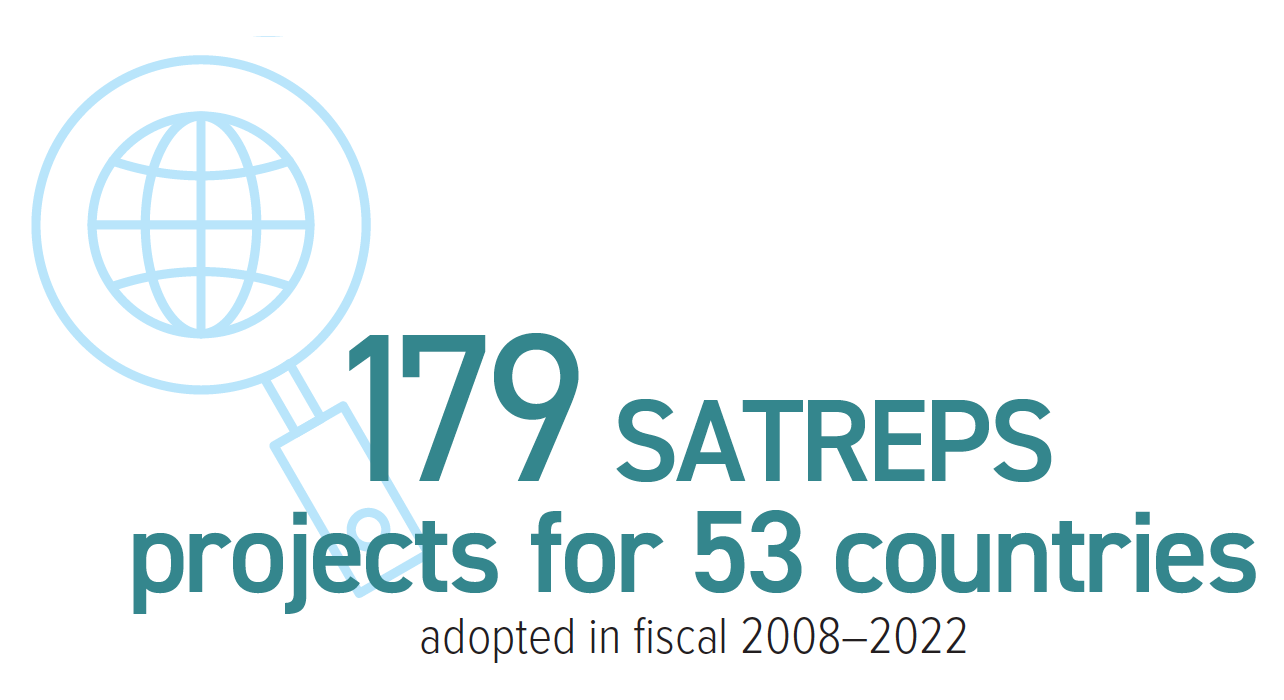
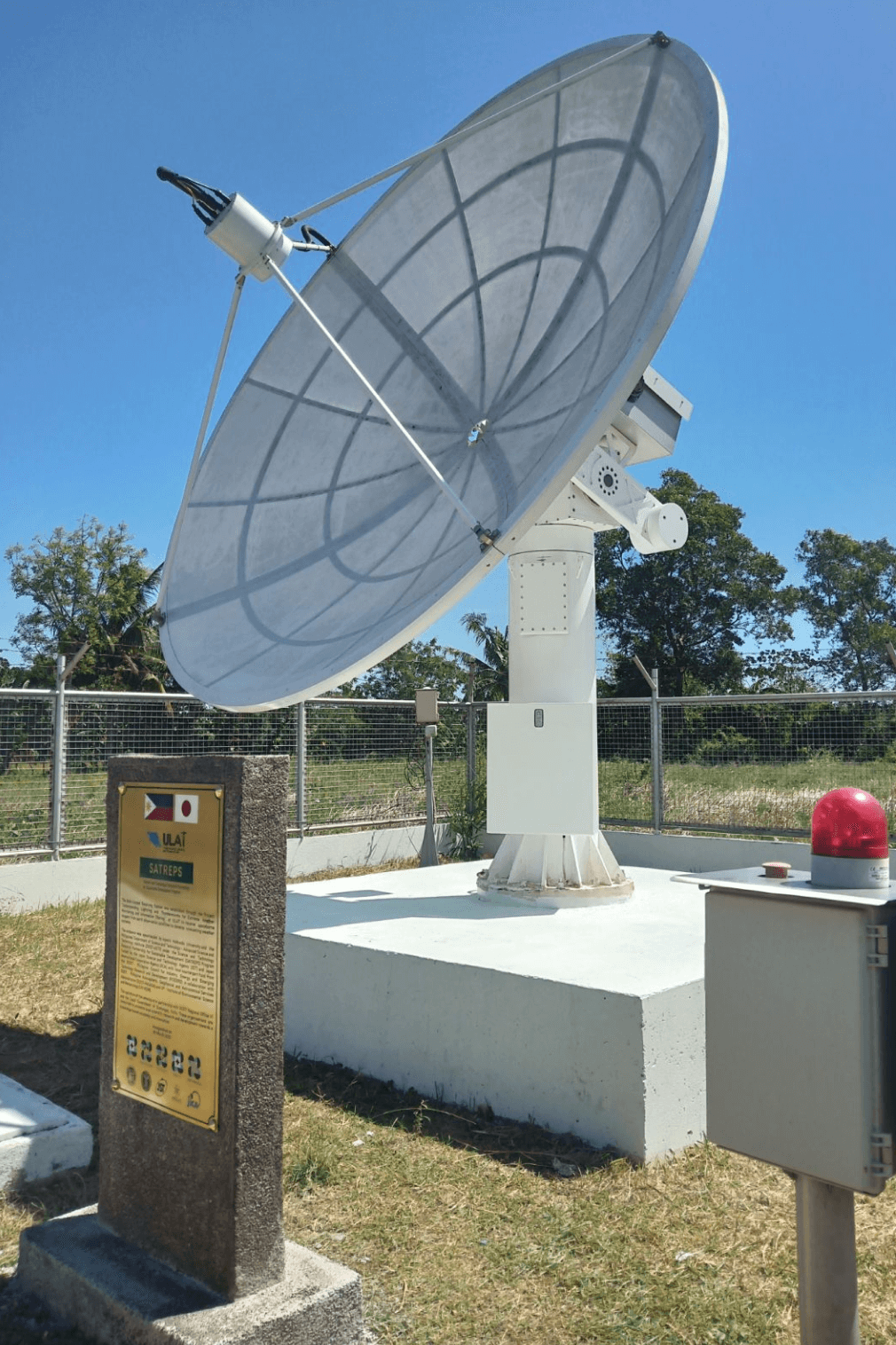
Philippines: An antenna for a local user terminal (a ground satellite data receiving station) provided under the Project for Development of Extreme Weather Monitoring and Information Sharing System. With the use of satellite data thus received, the project developed a system to forecast extreme weather events.

